Stuart Aken's Blog, page 297
July 26, 2011
Stuart's Daily Word Spot: Decorum
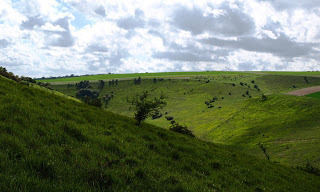 Decorum: noun - literaryor dramatic propriety, fitness; propriety, good taste in conduct or appearance; orderliness; polite behaviour.
Decorum: noun - literaryor dramatic propriety, fitness; propriety, good taste in conduct or appearance; orderliness; polite behaviour.'Johnson, who had a propensity for loutish behaviour when he'dhad too much to drink, was asked to show a little more decorum at his father'swedding to the ambassador's daughter.'
Picture: sometimes Zemanta doesn't come up with a suitable image. This one's of Pasture Dale, East Yorkshire.
Published on July 26, 2011 07:00
July 25, 2011
Stuart's Daily Word Spot: i.e. or e.g?
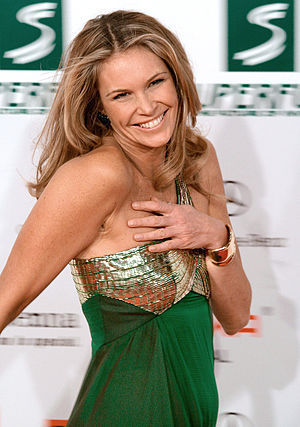 Image via Wikipedia
Image via Wikipediai.e. or e.g?A bit of Latin:i.e. or, id est, means 'that is'. i.e. is another way of expressing'in other words' and its purpose is to make something clearer by providing a morecommon definition.
'The leading civil servant promised to 'elucidate mattersemploying terminology comprehensively coherent to those deficient in the fieldof education and enlightenment on all prospective eventualities'. i.e. he wouldspeak more clearly in future.
e.g. is an abbreviation of another Latin phrase; exempligratia means 'for example'. e.g. is used to present specific examples supportingan assertion.
'The fact of the matter is that some women look better in abikini than others; e.g. Kelly Brook, Elle Macpherson, Holly Weber and AnneWiddicombe.

Published on July 25, 2011 07:00
July 24, 2011
Stuart's Daily Word Spot: Picaresque
 Cover of Moll Flanders
Cover of Moll FlandersPicaresque: adjective - relating to rascals and rogues; suggesting fictiondealing with the episodic adventures of a roguish protagonist.Good examples are MollFlanders, by Daniel Defoe and TomJones, by Henry Fielding. Modern readers, and filmgoers, will probably bemore familiar with the genre as demonstrated by the Pirates of the Caribbean series.
'Stuart's novel, relating the adventures of an unqualifiedhospital doctor, was described by reviewers as a picaresque romp.'

Published on July 24, 2011 07:00
July 23, 2011
Stuart's Daily Word Spot: Cabinet
 Image via Wikipedia
Image via WikipediaCabinet: noun- case or cupboard usually with doors and shelves; collection of biologicalor numismatic specimens; a chamber with temperature and humiditycontrols, used for incubating biological samples; small room providingseclusion; small exhibition room in a museum; private room usedas council chamber of chief councillors of a sovereign; theconsultations and actions of these councillors; body of advisers of a head ofstate; advisory council of a governor of a state or a mayor; ameeting of a Cabinet.
'Harold emptied out the shopping bags and filled the kitchencabinet with the groceries he'd bought at the supermarket.'
'Calling the Cabinet to order, Shirley rose to her feet, atthe head of the table, and announced her intention to become an absolutedictator and have all the members present shot as an example to any who mightoppose her plans for world domination.'

Published on July 23, 2011 07:00
July 22, 2011
Stuart's Daily Word Spot: Epidemic, endemic or pandemic?
 Image via Wikipedia
Image via WikipediaEpidemic, endemic or pandemic? An epidemic occurs when an outbreak of disease is widespreadbut confined to a limited place and time.An endemic disease is one which recurs in a particular placeor population.A pandemic is an outbreak of a specific pathogen over a widegeographical area.
So, an epidemic might afflict a specific hospital, or even atown or region of a country. Malaria is endemic in many African countries.The notorious 1918 outbreak of Spanish Flu was a pandemicthat caused multiple deaths in many regions of the world.
22 July 1991 – PM John Major launched The Citizen's Charter.Is Cameron's Big Society a development of this idea?
Zemanta has returned to Blogger. Hooray!

Published on July 22, 2011 07:00
July 21, 2011
Author Interview with Susan Moody
 Pleasetell us little about you, Susan.
Pleasetell us little about you, Susan.I've beenwriting (and being published) for 30 years or so, mainly crime andsuspense. In my time, I've been Chairman of the Crime WritersAssociation of Great Britain, and World President of the InternationalAssociation of Crime Writers. To be a writer was an ambition from myvery earliest years and I constantly thank whatever gods there are for havingbeen able to achieve this. I have so enjoyed all the activitiesassociated with the job – because it is a job, and a hard one,too – especially the opportunities to travel. Some years back I wasinvited to be a Writer-in-Residence at the University of Tasmania, inAustralia, where I met my Australian/Scottish husband John. Ofnecessity, we lead a nomadic life: between us we have children in Australia,Iceland, California and Denmark, and homes in England, Australia and France.
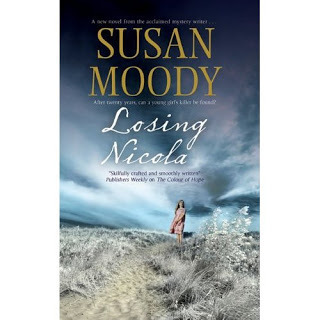 Give ussome insight into LOSING NICOLA in a few sentences.
Give ussome insight into LOSING NICOLA in a few sentences. It's a bookabout childhood and the loss of innocence, and though the murderous eventsdescribed in it never actually happened to me, I'd like to think it capturesthe essence of a place and time – the 1950s – which has gone forever, and thekind of slightly odd family I grew up in.
How didyou come to write this particular book?
Casting aboutfor a new book to write, I remembered a short story I'd written a long timeago, and thought that it had all the ingredients for turning into a much longerpiece of fiction. It was also a huge pleasure to write aboutparts of my childhood, something I'd not done before. So although itis in no way autobiographical, it does contain a lot of mypast.
If youhave a favourite character in your novel, why that particular one? Orlando,because he is based on and celebrates my much-loved brother, Barnaby, who diedmuch too young.
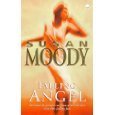 Where canpeople buy your books?
Where canpeople buy your books?I've written28 books and nearly all of them have been published in the UK, as well as inmany other countries (including the US.) Most of them are availableon Amazon. (SA – see the full list at the foot of this interview). Whatqualities does a writer need to be successful?
Perseverance,self-belief, ruthlessness and probably – though I hate to admit it because likemost writers I'd prefer to believe that my work is good enough on its own! – alittle bit of luck. Women writers especially have a hard timekeeping to a writing schedule and at the same time fulfilling their traditionalrole of mother, wife, chef, cleaner and bottlewasher. What isyour working method?
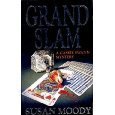 At this pointin my life, rather more haphazard than I'd like it to be. When Istill had a child at school, it was easy: as soon as he had gone off for theday, I was at my desk and worked until he returned. Now, with aretired husband needing attention, it's a great deal harder. Butbasically I like to work creatively for about four hours, as early in themorning as possible, and the rest of the day, revise, answer emails, read, research,meet people, prepare talks etc etc. The difficult thing about a writer'slife is finding solitary time, and at the same time realizing that unless youinteract with others, you aren't engaging with the people and in the life thatyou're writing about.
At this pointin my life, rather more haphazard than I'd like it to be. When Istill had a child at school, it was easy: as soon as he had gone off for theday, I was at my desk and worked until he returned. Now, with aretired husband needing attention, it's a great deal harder. Butbasically I like to work creatively for about four hours, as early in themorning as possible, and the rest of the day, revise, answer emails, read, research,meet people, prepare talks etc etc. The difficult thing about a writer'slife is finding solitary time, and at the same time realizing that unless youinteract with others, you aren't engaging with the people and in the life thatyou're writing about.What's thesingle biggest mistake made by beginner writers?
a) Openinga book with a funeral or a dream.b) Crammingtoo much information into the first chapterc) Notdifferentiating between charactersBut b) is themost usual
To whatextent are grammar and spelling important to a writer?
Absolutelyvital. They are the main tools of communication and if they areignored, the reader is lost. There is nothing worse for the readerthan being pulled up short, wondering what the writer is trying to say and nowriter should ever ignore her potential readers.
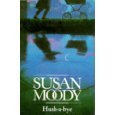 How muchdo you revise your MS before you send it off?
How muchdo you revise your MS before you send it off?Revising amanuscript is not the same as redrafting or rewriting. These days,most publishers no longer use copy-editors, so a mss has to be as perfect as itcan be before it is delivered I work hard at this but even then it'sall too easy for things to slip past me.For a bookwhich is to appear next February, I've been asked to lose about 9,000words. For a writer, this is like leaking blood, but it's such agood lesson: it's all too easy to fill a paragraph with wonderful butextraneous stuff.
As awriter, to what extent do you think genre is useful in the publishing world?
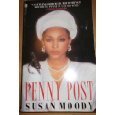 Very useful:apart from anything else, it's helpful for readers to be directed to the areathey enjoy. It also helps to identify the writer, both to the readerand to herself. I very much enjoy being labelled 'Crime Writer', andbelonging to associated groups such as the Crime Writers' Association, theDetection Club and the International Association of Crime Writers.
Very useful:apart from anything else, it's helpful for readers to be directed to the areathey enjoy. It also helps to identify the writer, both to the readerand to herself. I very much enjoy being labelled 'Crime Writer', andbelonging to associated groups such as the Crime Writers' Association, theDetection Club and the International Association of Crime Writers.Marketingis often considered a chore by authors. What's your opinion on this issue andhow do you deal with it?
In today'smarket, we're all scrabbling for attention and should be grateful for anychance to raise the profile of our books. The vast majority of writers can'tafford to be finicky or up themselves about it. I'm alwaysdelighted to be asked to 'market' my books in terms of signings, libraryvisits, talks. Besides it's a great morale-booster to know thatthere are actually fans out there.
What sortof displacement activities keep you from writing?
Just aboutanything, from thinking about domestic chores to reading to the card gameswhich came already installed on my most recent computer. Like manywriters, I'm reluctant to take the plunge each day into that abyss ofcreativity which constitutes the imaginary world you are conjuring up, and it'sfatally easy to find an excuse not to do so.
Whatsupport do you have from family and friends, or a writing group?
Family andfriends are always supportive. I don't belong to a writing group butit's such a good idea and many of my colleagues do. Though eagerlyencouraging and loyal, it took my husband John quite a while to come to termswith A Writer's Life as lived by me, especially the tantrums and temperamentaldoor-slammings caused by the inevitable frustrations of authorship. How longdoes it normally take you to write a novel?
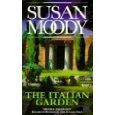 That entirelydepends on the book. I wrote one in 5 months last time I was inAustralia; I used to write a Penny Wanawake in 3 months, but my bigger one-offnovels take a year or more.
That entirelydepends on the book. I wrote one in 5 months last time I was inAustralia; I used to write a Penny Wanawake in 3 months, but my bigger one-offnovels take a year or more.Who orwhat inspires you?
Nothing inparticular. It's a sudden realization that there's an idea waiting,a story waiting to be told, a story that no-one can tell as well as Ican. It's like hearing a long-awaited bus about to come round thecorner and stop for you to climb aboard If there'sa single aspect to writing that really frustrates you, what is it?
Not gettingpaid enough!.
Is therean aspect of writing that you really enjoy?
Writing anovel is an organic process and there is absolutely nothing more wonderfulthan feeling the thing starting to gel, or your characters proving to beso well-realized that you know exactly who they are and where they are headed,so that writing about them is almost like taking dictation.
Do youthink writing is a natural gift or an acquired skill?
I don't thinkyou can learn to be a writer, but you can certainly acquire the skills tobe a better writer. That said, I also believe that writers are born,not made.
What areyou writing now?
A book calledDANCING IN THE DARK, due out in February. It's a romantic suspensenovel about a young woman coming to terms with the fact that she wasapparently abandoned at the age of 11.
Givenunlimited resources, what would be your ideal writing environment?
More or lesswhat I have at the moment.
Where doyou actually write?
In my housein France, I have a very small red-tiled stone outhouse called ChezSusanne , which has room for a table, a book-case, an armchair and aplug for an electric kettle so I can make endless cups of tea. Bliss.
SA: Here is a list of Susan's books; UK readers will find a buyinglink to most of them here. And USand the rest of the world cantry this link.
BIBLIOGRAPHYPenny Black Macmillan, 1984Penny Dreadful Macmillan, 1984Penny Post Macmillan, 1985Penny Royal Macmillan, 1986Penny Wise Michael Joseph, 1988Penny Pinching Michael Joseph, 1989Penny Saving Michael Joseph, 1990Playing With Fire Macdonald, 1990The Hatchards Crime Companion (editor) Hatchards, 1990Hush-a-bye Macdonald, 1991House of Moons Hodder & Stoughton, 1993Love Over Gold (writing as Susannah James) Corgi, 1993Takeout Double Headline, 1993Grand Slam Headline, 1994The Italian Garden Hodder & Stoughton, 1994King of Hearts Headline, 1995Misselthwaite Hodder & Stoughton, 1995Doubled in Spades Headline, 1996Sacrifice Bid Headline, 1997Dummy Hand Headline, 1998Falling Angel Hodder & Stoughton, 1998The Colour of Hope (writing as Susan Madison) Bantam, 2000The Hour of Separation (writing as Susan Madison) Bantam, 2002Touching the Sky (writing as Susan Madison) Bantam, 2003Losing Nicola Severn House, 2011
Published on July 21, 2011 08:30
Stuart's Daily Word Spot: Meiosis
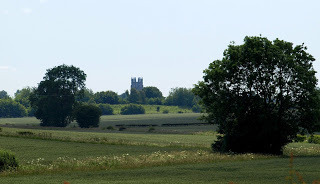 Meiosis: noun - presentinga thing with underemphasis, especially with the aim of achieving a greatereffect, understatement. For those who are interested, it's also a form of celldivision, but that's not what this spot is about.British satirical works often use understatement to hilariouseffect.
Meiosis: noun - presentinga thing with underemphasis, especially with the aim of achieving a greatereffect, understatement. For those who are interested, it's also a form of celldivision, but that's not what this spot is about.British satirical works often use understatement to hilariouseffect. An example of the meiosis in use: 'They say Bill Gates,Donald Trump and J.K. Rowling are all worth a few bob.'
Picture: the parish church of Driffield, seen from just off Spellowgate.
Published on July 21, 2011 07:00
July 19, 2011
Stuart's Daily Word Spot: Bacchanalia
 Bacchanalia: noun -named from the Roman god of wine, Bacchus; a Roman festival celebrated withdancing, song, and revelry; orgy.
Bacchanalia: noun -named from the Roman god of wine, Bacchus; a Roman festival celebrated withdancing, song, and revelry; orgy.'After they left Glastonbury, one group of festival goersbought large quantities of cheap wine and took it to a local field where grassstill grew. There, abandoning clothes along with cares, their spontaneous partyquickly developed into a Bacchanalia, with obvious consequences for allinvolved.'
Picture: Flowers in Palm Court, Sissi, Crete. Far from Bacchanalian.
Published on July 19, 2011 07:00
July 18, 2011
Stuart's Daily Word Spot: Malapropism
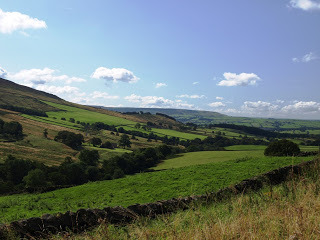 Malapropism: noun - taken from the surname of Mrs. Malaprop,a character in R. B. Sheridan's comedy 'The Rivals' (1775) noted for her misuseof words: unintentionally humorous misuse or distortion of a word or phrase; useof a word sounding like the one intended (homophones) but ludicrously wrong inthe context.Used well, the deliberate replacing of words with differentones can really make a humorous scene.
Malapropism: noun - taken from the surname of Mrs. Malaprop,a character in R. B. Sheridan's comedy 'The Rivals' (1775) noted for her misuseof words: unintentionally humorous misuse or distortion of a word or phrase; useof a word sounding like the one intended (homophones) but ludicrously wrong inthe context.Used well, the deliberate replacing of words with differentones can really make a humorous scene. 'If it's true that Jesus sent them gabardine swine into thesea to drown, it's not very Christian, is it?' (Gadarene).
'Them women was jus' sayin' that there fellah's fallacy ain'tnowhere near as huge as 'e says it is.' (phallus)
Picture: Overlooking the Yorkshire Dales.
Published on July 18, 2011 07:00
Stuart's Daily Word Spot: Ensure, insure or assure?
 Ensure, insure or assure? Ensure: verb - tomake sure, safe, or certain; guaranteeInsure: verb - to obtainor provide insurance on or for; to make certain by taking necessary measuresand precautions; to contract to give or take insurance, ensureAssure: verb - tomake safe from risks or against overthrow; insure; to give confidence to; tomake sure or certain; convince; to inform positively; to make certain thecoming or attainment of; guarantee; ensureIt is probably pedantic to be too concerned about thesometimes subtle difference between these three words that are often interchangeable.As is so often the case, it comes down to context. It would be unusual to use 'assure'in a financial context (though the industry often does this). And 'ensure' isn'tused in the financial context at all. Probably, the best way to think of the general use of theseterms is to think of 'ensure' in terms of a guarantee, 'insure' in the sense of'indemnify', and 'assure' as a synonym of 'comfort' or 'convince'.So, we all 'ensure' the safety of our children, 'insure' ourhouses and cars against disasters and accidents, and 'assure' our friends andloved ones of our loyalty and love. Hope this helps.
Ensure, insure or assure? Ensure: verb - tomake sure, safe, or certain; guaranteeInsure: verb - to obtainor provide insurance on or for; to make certain by taking necessary measuresand precautions; to contract to give or take insurance, ensureAssure: verb - tomake safe from risks or against overthrow; insure; to give confidence to; tomake sure or certain; convince; to inform positively; to make certain thecoming or attainment of; guarantee; ensureIt is probably pedantic to be too concerned about thesometimes subtle difference between these three words that are often interchangeable.As is so often the case, it comes down to context. It would be unusual to use 'assure'in a financial context (though the industry often does this). And 'ensure' isn'tused in the financial context at all. Probably, the best way to think of the general use of theseterms is to think of 'ensure' in terms of a guarantee, 'insure' in the sense of'indemnify', and 'assure' as a synonym of 'comfort' or 'convince'.So, we all 'ensure' the safety of our children, 'insure' ourhouses and cars against disasters and accidents, and 'assure' our friends andloved ones of our loyalty and love. Hope this helps.Picture: Oxlands Dale, near Huggate, East Yorkshire.
Published on July 18, 2011 07:00



